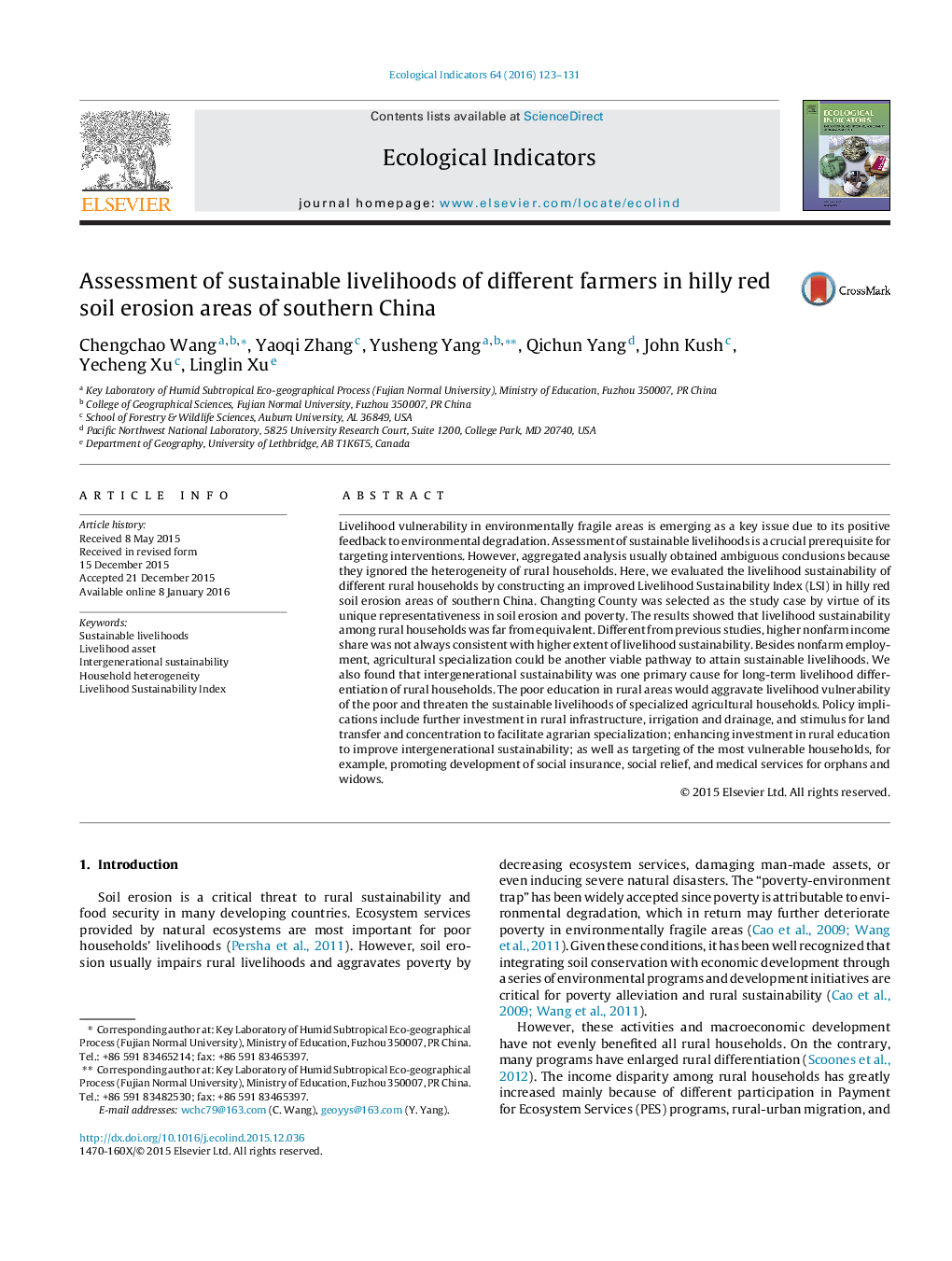| کد مقاله | کد نشریه | سال انتشار | مقاله انگلیسی | نسخه تمام متن |
|---|---|---|---|---|
| 4372942 | 1617138 | 2016 | 9 صفحه PDF | دانلود رایگان |
• We apply Maslow's hierarchy of needs theory to sustainable livelihoods.
• Household heterogeneity was considered in assessing rural sustainable livelihoods.
• Intergenerational sustainability may decide next generation's livelihood sustainability.
• Intergenerational sustainability can be showed by current offspring education.
• Agricultural specialization is also a viable pathway to attain sustainable livelihoods.
Livelihood vulnerability in environmentally fragile areas is emerging as a key issue due to its positive feedback to environmental degradation. Assessment of sustainable livelihoods is a crucial prerequisite for targeting interventions. However, aggregated analysis usually obtained ambiguous conclusions because they ignored the heterogeneity of rural households. Here, we evaluated the livelihood sustainability of different rural households by constructing an improved Livelihood Sustainability Index (LSI) in hilly red soil erosion areas of southern China. Changting County was selected as the study case by virtue of its unique representativeness in soil erosion and poverty. The results showed that livelihood sustainability among rural households was far from equivalent. Different from previous studies, higher nonfarm income share was not always consistent with higher extent of livelihood sustainability. Besides nonfarm employment, agricultural specialization could be another viable pathway to attain sustainable livelihoods. We also found that intergenerational sustainability was one primary cause for long-term livelihood differentiation of rural households. The poor education in rural areas would aggravate livelihood vulnerability of the poor and threaten the sustainable livelihoods of specialized agricultural households. Policy implications include further investment in rural infrastructure, irrigation and drainage, and stimulus for land transfer and concentration to facilitate agrarian specialization; enhancing investment in rural education to improve intergenerational sustainability; as well as targeting of the most vulnerable households, for example, promoting development of social insurance, social relief, and medical services for orphans and widows.
Journal: Ecological Indicators - Volume 64, May 2016, Pages 123–131
